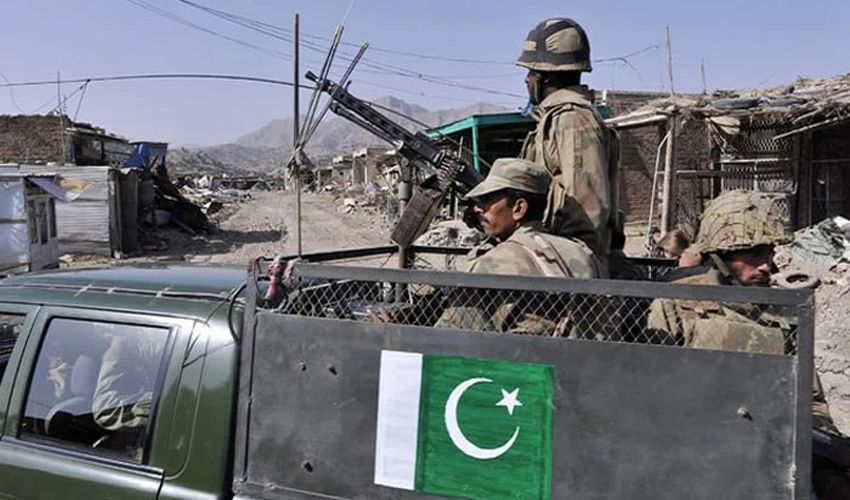Seven soldiers of Pakistan Army were martyred in a deadly Balochistan terrorist attack on Tuesday. According to a statement issued by Inter-Services Public Relations (ISPR), the blast occurred in Mach, a town in Kachhi District. Terrorists targeted a military vehicle using an improvised explosive device (IED).
The ISPR confirmed that the attack was carried out by members of the Baloch Liberation Army (BLA). The group is widely believed to be an Indian-backed proxy working to destabilize Balochistan. The Balochistan terrorist attack claimed the lives of brave security personnel from different parts of the country.
The fallen heroes include 42-year-old Subedar Umar Farooq from Karachi, 28-year-old Naik Asif Khan from Karak, 28-year-old Naik Mashkoor Ali from Orakzai, 26-year-old Sepoy Tariq Nawaz from Lakki Marwat, 28-year-old Sepoy Wajid Ahmed Faiz from Bagh, 22-year-old Sepoy Muhammad Asim from Karak, and 28-year-old Sepoy Muhammad Kashif Khan from Kohat. Each soldier embraced martyrdom while performing their duty.
Military forces have begun a thorough clearance operation in the area. They are working to track and eliminate any remaining terrorists hiding in the region. The Balochistan terrorist attack is being treated as part of a larger plot to sabotage national peace and security.
ISPR vowed that those behind this cowardly act would be brought to justice. “Security forces of Pakistan, in step with the nation, remain determined to thwart attempts at sabotaging peace, stability, and progress of Balochistan,” the statement read. It added that such sacrifices only deepen the resolve of the armed forces and the Pakistani people.
The ISPR also held India responsible for supporting terrorist activities on Pakistani soil. It stated that Indian-sponsored groups and networks would be defeated by Pakistan’s security forces, intelligence agencies, and citizens. The Balochistan terrorist attack is seen as part of India’s broader destabilization campaign.
This tragic incident follows a violent standoff with India over a recent assault in Indian Illegally Occupied Jammu and Kashmir (IIOJK). In Pahalgam, 26 tourists were killed in an attack that India immediately blamed on Pakistan. However, no evidence was provided by New Delhi.
Following the Kashmir incident, India took several hostile actions. It suspended the Indus Waters Treaty, revoked all visas for Pakistanis, and shut the Wagah-Attari border crossing. In return, Islamabad expelled Indian diplomats and military advisors. Pakistan also canceled visas for Indian citizens, except for Sikh pilgrims, and closed its own border crossing.
Pakistan firmly denied involvement in the Kashmir attack. It offered to participate in a credible and transparent investigation. Still, India continued its aggressive posture.
On Monday, a report in The News quoted intelligence sources claiming that India’s intelligence agency RAW had reactivated its network of proxies in Balochistan. These groups include the Baloch Liberation Army (BLA), Fitna-ul-Khawarij, and even illegal Afghan nationals. They are allegedly being used to spread violence in cities like Gwadar, Quetta, and Khuzdar.
Intelligence further revealed that suicide bombers have been assigned detailed reconnaissance missions. These attackers use motorcycles and cars to reach their targets. This Balochistan terrorist attack is now being viewed as part of that larger pattern of planned violence.


